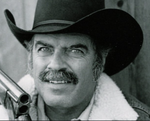A hunting guide should be able to make your hunt a success, or at least try to the best of his ability to do so. Problem is, nothing is certain about fair chase hunting. There are no guarantees because there are too many variables. The weather can work against you, the quarry may have moved out of your area or are behaving irregularly (such as elk having lockjaw during the rut), or many other factors.
One of the factors that should never occur is having an incompetent guide. Let me say right off that the majority of guides are savvy outdoorsmen and understand something about human behavior. Then there are those who do not. They fail miserably in some or all aspects.
And how about this. Some guides are hired who have never been in the country they’re hunting. This typically occurs when something happens to a regular guide because he broke his leg, had a falling-out with the outfitter, decided to take a higher paying job, or a variety of other reasons. I’ve known outfitters who have walked in a saloon in a half panic to hire some last-minute guides. This doesn’t happen often, but it’s occurred.

It’s important that guides themselves are good hunters and should be acquainted with the quarry’s behavior. As an example, I knew a guide who was totally unfamiliar with elk habits. He wanted to sit and watch a clearing in the forest because there was fresh sign there. He should have been aware that the elk were present in the night, especially if there was any hunting pressure. Typically, elk will leave their daytime beds in the forest after the sun goes down. They’re hungry because they’ve been loafing and sleeping and chewing their cuds during the day. Guides should know this and plan on watching the meadow until the last second of shooting light. If you’re a ways from camp and riding horseback, that means a long trip in the dark. If you’ve killed an elk, that means field dressing it with flashlights and headlamps and transporting it out in the dark or leaving it hanging in Caribou Gear Game bags and returning with more help in the morning. Some guides may not be willing to hang out and watch the meadow until the last minute, especially in grizzly bear country.
If you’re hunting elk during the rut season the guide must know how to call and how to react accordingly when he gets a response. This is extremely important. I once hunted with a guide who was timid about calling. We’d ridden horseback deep in a wilderness during the peak of the rut. The elk were being elk and we hadn’t heard a peep all morning. In three hours of hiking my guide called only twice. At one point we’d descended on foot into a deep canyon. We came to a place in the timber where there were numerous fresh rubs and the place reeked like a barn full of elk. My guide didn’t recognize the potential so I told him I wanted to take a picture of him using a call. He put the call to his mouth but didn’t blow into it. I told him to really call because I wanted to film him with his cheeks puffed out. He called, and a bull shattered the silence with a hoarse bugle. He was close, and he suddenly smashed his way through a blowdown and charged straight for us. I was ready. He stopped momentarily and I put him down with my .30/06. He was a beauty, with six on each side.

A huge requirement a good guide must possess is the necessity of maintaining a pace the hunter can keep up with, whether you’re walking on a trail or busting through blowdowns, walking across rockslides or scree slopes, or hiking in timber. Many guides never look back to see where their hunter is, leaving the person far behind. This is a common practice, typically when the guide is young and in great shape and the hunter has a sedentary job and needs more workouts at the gym. Or, maybe the hunter is getting along in years and has some physical injuries or limitations such as a bad knee or a heart or lung condition.
Once I hunted with a guide who loped along. At the time I’d had a foot injury and couldn’t keep up with him. Before long, my guide was out of sight, far up the trail. When there was a fork I took the opposite one the guide had taken, as revealed by his foot prints in the snow. I slowed down, and hunted my own way, stopping often and easing along in prime elk country. Suddenly I spotted a small herd of elk with a decent bull. I took the shot and put the elk down. Minutes later the guide came roaring along on the trail. I had already tagged my bull and was starting to field dress it. He seemed irritated and asked me why I didn’t follow him. I told him it wouldn’t have been legal for him to hit an elk with a rock and wait for me to come along and finish it off. I was kidding, of course, but he got the message. I hadn’t said it with a smile. I was irritated too.
There’s a scenario that occurs commonly, and it’s a demonstration of the guide not understanding the hunter. This is when the guide is far ahead of the hunter and stops, waiting for the hunter to catch up. As soon as he does, the guide immediately takes off. So the guide has a moment to rest while waiting, and the hunter doesn’t. This is especially a problem when the guide is in better shape than the hunter. Fact is, most of them are.
Sometimes a guide will do something that seems perplexing. Once I hunted in a Wyoming wilderness camp and had a guide who rode nonstop through beautiful, prime elk country. I wondered why we weren’t walking slowly, hunting our way along. Instead, he seemed to be on a mission. Finally, he dismounted. We tied up our horses and eased through some timber. We quickly spotted a herd of elk feeding in a meadow and I was able to sneak within range and make the shot. As it turned out, my guide knew exactly where he was going. He knew the elk preferred that meadow and would return consistently.
So how do you know if your guide is really savvy about the hunt? You really don’t. In most cases you need to simply trust him. Many hunters watch TV shows and YouTube videos and believe they’re fairly expert in the woods. Some have been on two or three elk hunts and figure they’re elk experts. Every hunt scenario is different. If you really think your guide is doing something wrong, you should have a chat with him. Sit down on a log and hash it out. Maybe he’s continually walking too far ahead. Tell him he needs to slow down and match his pace with yours. This may be hard to do. Guides have a sense of pride and usually are competing with the other guides. He’s no doubt genuinely interested in you scoring and is trying his best to put you within range of a good animal. But there’s no sense hurting yourself. Some hunters have returned from a hunt with serious physical issues because of over exertion, and some have perished because of a heart issue.

Be sure to speak to the outfitter before he selects a guide for you so you’ll be paired up with a person who will work with you in accordance with your physical ability. Be sure he knows what kind of animal you’re looking for. After all, it’s your hunt. You’re paying for it. You can sit on a log all day and read a book, or you can follow the guide regardless of the terrain and obstacles. Make the best of your hunt and be mentally prepared to go home with an unpunched tag. It happens to the best of hunters. If for some reason you and the guide just can’t get along, speak to the outfitter. He’ll likely assign another guide to you. Personalities are always different. You might hit it off with a guide or you might dislike him. Compromise is always encouraged.















Very true.
Another issue that is important, especially in difficult hunts is encouragement.
I have been hunting in bad weather and miserable conditions and asked myself “why I’m I putting my self through this?, I don need to be doing this”.
I think it is very important that the guide is aware of the psychological part of a hunt.